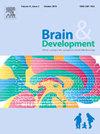泰语版日本学龄前儿童睡眠问卷(JSQ-P)的翻译和验证。
IF 1.3
4区 医学
Q4 CLINICAL NEUROLOGY
引用次数: 0
摘要
目的:本研究旨在将日本学龄前儿童睡眠问卷(JSQ-P)翻译成泰语版本并进行验证,同时评估与学龄前儿童睡眠问题相关的因素:方法:将日本学龄前儿童睡眠问卷(JSQ-P)跨文化改编为泰语版 JSQ-P(TH-JSQ-P),包括正译、调和、反译以及原作者的最终批准。调查对象为来自社区和临床环境的 2-6 岁儿童。学龄前儿童的家长在 10-14 天内两次完成 TH-JSQ-P 的填写,以评估其信度和效度。对六项效度测试进行了评估,包括面效度、内容效度、结构效度、构造效度、标准效度和预测效度。此外,还收集了人口统计学数据、埃普沃斯嗜睡量表(ESS)、医疗和行为问题以及社会经济状况,以便进行分析:共有 2613 名参与者完成了 TH-JSQ-P,其中 1207 人完成了两次以评估测试-再测可靠性。TH-JSQ-P具有良好的内部一致性信度和重测能力,Cronbach's alpha值为0.898,类内相关系数为0.814。内容效度可以接受。除睡眠习惯外,ESS 与几乎所有分量表中的睡眠问题都有相关性:TH-JSQ-P 是评估泰国学龄前儿童睡眠问题的有效而可靠的工具。结论:TH-JSQ-P 是评估泰国学龄前儿童睡眠问题的有效而可靠的工具,具有广泛应用于筛查睡眠问题的潜力,从而使医护人员能够及早发现睡眠问题并实施及时的管理。本文章由计算机程序翻译,如有差异,请以英文原文为准。
Translation and validation of the Thai Version of the Japanese Sleep Questionnaire for Preschoolers (JSQ-P)
Purpose
This study aimed to translate and validate the Japanese Sleep Questionnaire for Preschoolers (JSQ-P) into a Thai version and to evaluate factors associated with sleep problems in preschoolers.
Methods
The cross-cultural adaptation of JSQ-P into Thai version of JSQ-P (TH-JSQ-P) was performed including forward translation, reconciliation, backward translation, and final approval by the original creator. Children aged 2–6 years from community and clinical settings were enrolled. The TH-JSQ-P was completed by parents of preschool children twice within 10–14 days to assess its reliability and validity. Six validity tests including face validity, content validity, structural validity, construct validity, criterion validity and predictive validity were assessed. Demographic data, Epworth sleepiness scale (ESS), medical and behavior problems, and socioeconomic status were collected for analysis.
Results
A total of 2613 participants completed the TH-JSQ-P, with 1207 completing it twice to assess test-retest reliability. The TH-JSQ-P had good internal consistency reliability and test-retest ability with Cronbach's alpha value of 0.898 and intraclass correlation coefficient of 0.814. The content validity was acceptable. The ESS had correlation with sleep problems in almost all subscales except for sleep habit.
Conclusions
The TH-JSQ-P is a valid and reliable instrument for evaluating sleep problems in preschool children in Thailand. It has the potential to be extensively utilized to screen for sleep problems, thereby enabling healthcare professionals to identify them early and implement prompt management.
求助全文
通过发布文献求助,成功后即可免费获取论文全文。
去求助
来源期刊

Brain & Development
医学-临床神经学
CiteScore
3.60
自引率
0.00%
发文量
153
审稿时长
50 days
期刊介绍:
Brain and Development (ISSN 0387-7604) is the Official Journal of the Japanese Society of Child Neurology, and is aimed to promote clinical child neurology and developmental neuroscience.
The journal is devoted to publishing Review Articles, Full Length Original Papers, Case Reports and Letters to the Editor in the field of Child Neurology and related sciences. Proceedings of meetings, and professional announcements will be published at the Editor''s discretion. Letters concerning articles published in Brain and Development and other relevant issues are also welcome.
 求助内容:
求助内容: 应助结果提醒方式:
应助结果提醒方式:


